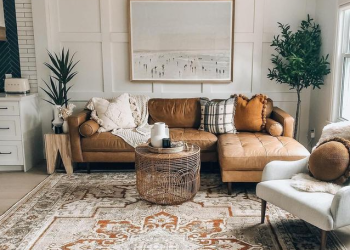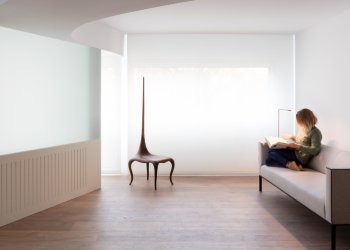Introduction to Bedroom Feng Shui
In the practice of Feng Shui, the bedroom holds a special significance as it is where we spend a significant portion of our lives, rejuvenating our bodies and minds through sleep. Creating a harmonious and balanced environment in the bedroom is essential for promoting restful sleep, enhancing overall well-being, and inviting positive energy into our lives.
The Fundamentals of Feng Shui
Feng Shui, an ancient Chinese art and science, is based on the principle that the arrangement and orientation of objects in our environment affect the flow of energy, or “qi.” By harnessing the natural forces of energy, Feng Shui seeks to create spaces that support and nourish our physical, mental, and spiritual health.
Choosing the Right Location for Your Bedroom
The location of the bedroom within the home plays a crucial role in Feng Shui. Ideally, the bedroom should be located away from busy areas of the house, such as the kitchen or living room, to minimize disruptions to sleep. It’s also important to avoid bedrooms situated directly above garages, bathrooms, or other sources of negative energy.
Bed Positioning and Layout
The positioning of the bed is central to bedroom Feng Shui. The bed should be placed in a commanding position, with a clear view of the door but not directly in line with it. This placement promotes a sense of security and stability while allowing for optimal energy flow around the room. Avoid placing the bed under a window or against a wall with electrical outlets, as this can disrupt the flow of energy.
Color Choices for Bedroom Walls
Color plays a significant role in setting the mood and atmosphere of the bedroom. In Feng Shui, soft, soothing colors such as light blues, greens, and neutral tones are recommended for promoting relaxation and restfulness. Avoid overly stimulating colors like bright red or orange, as they can create a sense of agitation and disrupt sleep.
Furniture Arrangement and Flow
The arrangement of furniture in the bedroom should promote a sense of spaciousness and tranquility. Avoid cluttering the room with excessive furniture or large pieces that obstruct the flow of energy. Opt for a minimalist approach, keeping only essential items and ensuring that pathways are clear for energy to circulate freely.
Creating a Balanced Yin and Yang
In Feng Shui, balance is key to creating harmony in the bedroom. This balance extends to the choice of bedding, where a harmonious blend of softness and firmness is ideal for promoting restful sleep. Incorporating elements of nature, such as wood or stone, can also help to balance the energy in the room and create a sense of grounding.
Decluttering and Organization
Clutter has a negative impact on the flow of energy in the bedroom, creating stagnant pockets of qi that can disrupt sleep and affect overall well-being. Take the time to declutter and organize the bedroom, removing unnecessary items and creating a sense of spaciousness and tranquility. Invest in storage solutions to keep belongings out of sight and promote a sense of calm.
Natural Light and Ventilation
Maximizing natural light and ventilation in the bedroom is essential for promoting positive energy flow. Keep windows unobstructed to allow natural light to filter into the room, and ensure good airflow to maintain freshness and vitality. Consider using sheer curtains to filter harsh sunlight and create a soft, diffused glow in the room.
Incorporating Plants and Crystals
Plants and crystals are powerful tools for enhancing energy flow and promoting balance in the bedroom. Choose plants with rounded leaves and soft, flowing shapes to create a sense of harmony and vitality. Crystals such as amethyst or rose quartz can be placed strategically around the room to amplify positive energy and promote restful sleep.
Artwork and Decor Choices
The artwork and decor in the bedroom should evoke feelings of serenity and tranquility. Choose images and objects that inspire a sense of calm and relaxation, such as nature scenes, abstract art, or soothing colors. Avoid displaying images or objects that evoke negative emotions or memories, as these can disrupt the flow of energy in the room.
Personalization and Individual Energy
While following Feng Shui principles, it’s important to incorporate personal touches that reflect your individual energy and preferences. Create a space that feels welcoming and nurturing to you, incorporating meaningful objects, photographs, and mementos that bring joy and comfort. By infusing your personal energy into the space, you can enhance its harmony and balance.
Sound and Noise Management
Sound plays a significant role in creating a peaceful sleep environment. Minimize disruptive noises in the bedroom by using soundproofing materials or white noise machines to block out external disturbances. Incorporate soothing sounds such as gentle music or nature sounds to promote relaxation and enhance sleep quality.
Bedroom Feng Shui for Couples
In shared bedrooms, it’s important to balance the individual energies of both partners to create harmony and balance. Arrange the room in a way that accommodates both partners’ preferences and promotes a sense of equality and partnership. Incorporate elements that represent the unity and connection between you, such as matching bedside tables or artwork that symbolizes love and togetherness.
Conclusion
Bedroom Feng Shui offers a holistic approach to creating harmony and balance in the sleep space, promoting restful sleep, and enhancing overall well-being. By following the principles of Feng Shui and making intentional choices about the layout, color, and decor of the bedroom, you can create a sanctuary that supports your physical, mental, and spiritual health.

FAQs After The Conclusion
1. Can I apply Feng Shui principles to a small bedroom?
Yes, Feng Shui principles can be applied to bedrooms of all sizes, including small spaces. Focus on maximizing natural light, decluttering, and choosing calming colors and decor to create a sense of spaciousness and tranquility.
2. How can I improve the Feng Shui of my bedroom if I rent and can’t make structural changes?
Even if you’re renting and can’t make structural changes to the bedroom, there are still plenty of ways to improve its Feng Shui. Focus on decluttering, choosing calming colors, and arranging furniture in a way that promotes good energy flow.
3. Are there Feng Shui principles specifically for children’s bedrooms?
Yes, Feng Shui principles can be applied to children’s bedrooms to promote restful sleep and overall well-being. Focus on creating a nurturing and supportive environment with soothing colors, soft lighting, and positive imagery.
4. Can Feng Shui help with sleep problems such as insomnia?
While Feng Shui is not a substitute for medical treatment, creating a harmonious and balanced sleep environment can certainly help with sleep problems such as insomnia. By promoting relaxation and tranquility in the bedroom, Feng Shui can support healthy sleep habits.
5. What should I do if my bedroom has negative energy or feels uncomfortable?
If your bedroom feels uncomfortable or has negative energy, consider applying Feng Shui principles to create a more harmonious and balanced environment. Start by decluttering, rearranging furniture, and incorporating calming colors and decor.
6. Can I combine Feng Shui principles with other decorating styles?
Yes, Feng Shui principles can be incorporated into virtually any decorating style. Whether your style is modern, traditional, or eclectic, you can still create a harmonious and balanced bedroom by following the principles of Feng Shui.
7. How often should I update the Feng Shui of my bedroom?
It’s a good idea to periodically review and update the Feng Shui of your bedroom, especially if you notice changes in your sleep patterns or overall well-being. Make adjustments as needed to maintain harmony and balance in the space.
8. Are there any Feng Shui remedies for bedrooms with challenging layouts?
Yes, there are Feng Shui remedies that can help mitigate the effects of challenging layouts in bedrooms. These may include using mirrors to expand space, incorporating feng shui cures such as crystals or wind chimes, or strategically placing furniture to redirect energy flow.


















